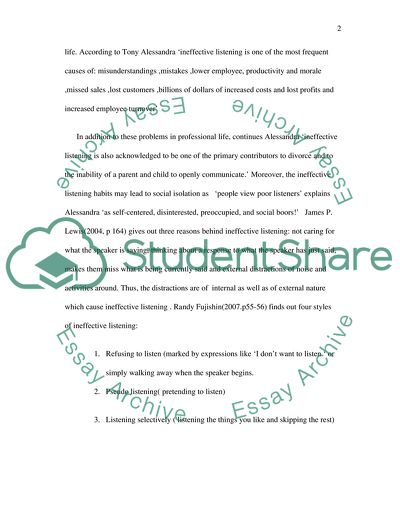Cite this document
(What Are the Characteristics of Effective Listening and Ineffective Li Essay, n.d.)
What Are the Characteristics of Effective Listening and Ineffective Li Essay. Retrieved from https://studentshare.org/education/1730597-what-are-the-main-characteristic-of-effective-and-ineffective-listening
What Are the Characteristics of Effective Listening and Ineffective Li Essay. Retrieved from https://studentshare.org/education/1730597-what-are-the-main-characteristic-of-effective-and-ineffective-listening
(What Are the Characteristics of Effective Listening and Ineffective Li Essay)
What Are the Characteristics of Effective Listening and Ineffective Li Essay. https://studentshare.org/education/1730597-what-are-the-main-characteristic-of-effective-and-ineffective-listening.
What Are the Characteristics of Effective Listening and Ineffective Li Essay. https://studentshare.org/education/1730597-what-are-the-main-characteristic-of-effective-and-ineffective-listening.
“What Are the Characteristics of Effective Listening and Ineffective Li Essay”. https://studentshare.org/education/1730597-what-are-the-main-characteristic-of-effective-and-ineffective-listening.


